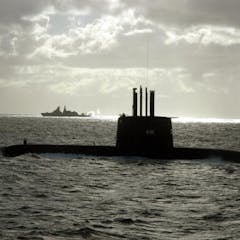
Articles on Blue economy
Displaying 1 - 20 of 45 articles

Instead of supporting Indonesia’s seaweed industry, an export ban could lower prices and reduce supply, without helping domestic processors to compete with foreign-owned companies.

Initiating a circular economy can help coastal west African countries to address plastic pollution with a World Bank fund.

A new ocean treaty could redirect the unsustainable fishing practices that were happening on the high seas to coastal African nations.

Nigeria’s new marine and blue economy ministry has promise but it must be well run.

South Africa is a large peninsula on the strategic Cape sea route. Some 90% of its trade flows through its harbours. The navy defends the country’s sovereignty and national interests.

Local fishers with small boats have had little say in Indonesia’s marine and fisheries governance, despite their important roles in ocean protection.

Our recent report identified how to make aquaculture – including shrimp and seaweed farming – more sustainable for Indonesians and for the environment.

There is only a single mooring managed by French researchers that monitors the impacts of climate change on West African Canary Current.

The ability of West Africa’s fisher women to cope or adapt in times of adversity should not let policymakers off the hook.

Ghana’s maritime economy faces significant challenges in becoming viable.

Ocean equity will be the key for achieving blue economies in Canada and the world

There is enormous potential to increase the productivity of African fisheries. There is also potential to improve coastal and marine health.

Africa runs the risk, yet again, of being an onlooker while others make policy for the continent.

Australia’s ‘blue economy’ needs a strong basis in marine science.

Idyllic destinations have been seen a calamitous drop in income since the pandemic.

The maritime situation in Mozambique must not be allowed to emulate the maritime threats found off Nigeria, Somalia, and the rebel-held territories in Libya.

Kenya needs to address spending inefficiencies to attain the goals outlined in the budget.

The oceans play a key role in regulating life on Earth. We must shift our view of them from as something to use if we hope to develop them sustainably.

Aquaculture is a growing source of healthy protein for millions of people around the world, but there are big differences between farming fish on land and at sea.

As few as 100 companies produced 60% of revenues in eight ocean industries in 2018.
